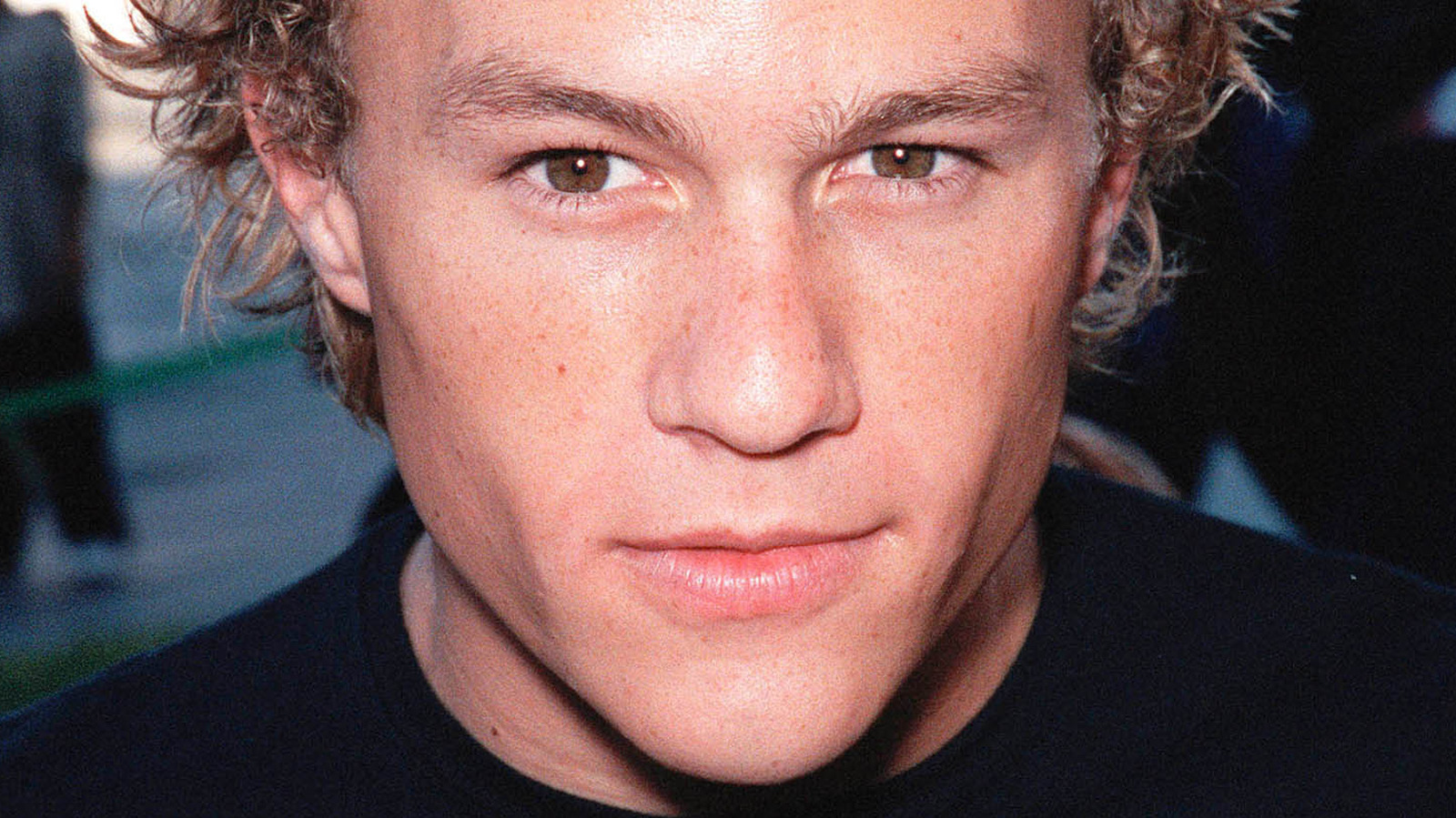Was it the burden of brilliance that ultimately extinguished Heath Ledger's incandescent light? The untimely passing of the acclaimed actor, a talent that promised so much, remains a haunting question, a tragic echo of unrealized potential.
The world mourned the loss of Heath Ledger on January 22, 2008. His death, ruled an accidental overdose, sent shockwaves through the entertainment industry and beyond. Found in his apartment in SoHo, New York City, the circumstances surrounding his passing sparked immediate speculation and a desperate search for answers. The news of his demise came as a profound shock, particularly considering his youth and the burgeoning success he was experiencing. The Australian native, who had captivated audiences with his remarkable range, was only 28 years old. His talent was undeniable; his future seemed limitless.
The official ruling from the New York City Medical Examiner's Office confirmed the cause of death: an accidental overdose of prescription drugs. The cocktail of substances included painkillers and sedatives, a potent mix that proved fatal. The details, revealed on a somber Wednesday, painted a picture of a man struggling, perhaps silently, with the pressures of his craft and the demands of a life lived in the public eye. The report served as a stark warning, a chilling reminder of the dangers associated with prescription drug misuse, particularly when multiple medications are combined.
- Brandi Jarrod Storage Wars Relationship Deep Dive Uncovered
- Aditi Mistry Rise Of A Star Her Impact On Social Media
The legacy of Heath Ledger is complex, a tapestry woven with threads of brilliance, vulnerability, and a premature end. He was more than just an actor; he was a transformative force, someone who dedicated himself to his craft with an intensity that was both admirable and, ultimately, perhaps self-destructive. The details surrounding his death remain a source of deep fascination and mourning for his fans and the world. His friend has revealed new information about the circumstances surrounding the actors death. The shadow cast by his death over "The Dark Knight," in which Ledger played the Joker, is indelible, forever linking his memory to one of his most iconic roles.
The investigation into Ledger's death revealed a constellation of prescription medications in his system. Six different drugs were found, including the potent combination of painkillers, and sedatives. The police, after the initial investigation, found the pills scattered around the room.
The Australian actor's talent knew no bounds. He had already garnered widespread recognition for his role in Ang Lee's "Brokeback Mountain" in 2005, a performance that earned him an Academy Award nomination and solidified his status as a leading man. From his breakout role in "10 Things I Hate About You" to the complex character of the Joker in Christopher Nolan's "The Dark Knight", Ledger demonstrated an extraordinary ability to inhabit diverse roles, disappearing into his characters with a commitment that was both admired and, in retrospect, perhaps concerning. The actor's transformation into the Joker, a character renowned for his chaotic nature, was described by some as an obsession, a deep dive into the psyche of a villain that may have ultimately contributed to his untimely demise.
The news of his passing was met with profound grief. "I literally just [collapsed], never happened to me before or since," recalls someone who received a phone call about the actor's death in 2008.
The German documentary "Too Young to Die" delved into Ledger's life, revealing insights into the actor's life, and offered the perspective from his father, who went into more detail on how much his son transformed to prepare for his role in "The Dark Knight."
The impact of Heath Ledger's death extended far beyond the immediate shock and grief. It sparked a renewed conversation about the pressures faced by actors, the dangers of prescription drug misuse, and the importance of mental health awareness within the entertainment industry. The untimely loss of such a promising talent served as a harsh reminder of the fragility of life and the potential for tragedy, even at the pinnacle of success.
| Category | Details |
|---|---|
| Full Name | Heath Andrew Ledger |
| Date of Birth | April 4, 1979 |
| Place of Birth | Perth, Western Australia, Australia |
| Date of Death | January 22, 2008 |
| Place of Death | SoHo, New York City, USA |
| Cause of Death | Accidental overdose of prescription drugs |
| Age at Death | 28 |
| Nationality | Australian |
| Known For | Acting |
| Notable Roles | "10 Things I Hate About You" (1999), "Brokeback Mountain" (2005), "The Dark Knight" (2008) |
| Awards | Academy Award for Best Supporting Actor (posthumous, for The Dark Knight), Golden Globe Award for Best Supporting Actor (posthumous) |
| Reference | IMDB |
The aftermath of Ledger's death saw an outpouring of grief from fans, colleagues, and the wider public. His performance as the Joker in "The Dark Knight," released posthumously, became a cultural phenomenon, earning him critical acclaim and a posthumous Academy Award for Best Supporting Actor. This recognition, while bittersweet, served as a testament to his exceptional talent and the lasting impact he made on the world of cinema. His family was planning a private service.
The investigation into Ledger's death and the subsequent media coverage brought increased attention to the issue of prescription drug abuse within the entertainment industry. Doctors warned of the dangers of mixing medications, and the importance of seeking professional help for mental health issues. The tragic loss of Heath Ledger served as a catalyst for greater awareness and a call for change within an industry that can often be as glamorous as it is grueling.
Many have speculated that Ledger's deep dive into the Joker's character, combined with the emotional intensity of his other roles, took a toll on his mental health. The transformation was complete. Some maintain that it was his obsession with the character that ultimately led to the overdose. He was found next to a screenplay. A friend of Ledger's told people that the actor would often drink and socialize into the early hours.
Heath Ledgers legacy continues to resonate, a reminder of the heights that can be reached with dedication and talent, as well as the fragility of the human condition. His work remains a source of inspiration and entertainment, a testament to the transformative power of acting. The circumstances surrounding his death, however, serve as a cautionary tale, a somber note that urges greater attention to the physical and psychological well-being of those who dedicate their lives to the art of performance.
The tragic loss of Heath Ledger is a stark reminder of the importance of seeking professional help. The world may never know the full extent of the struggles he faced. What is clear, however, is that his talent was undeniable, his legacy profound, and his absence a poignant loss to the world.
- Shiloh Joliepitt A Life In The Spotlight Beyond See
- Rose Bundy The Rising Star You Need To Know Latest News


